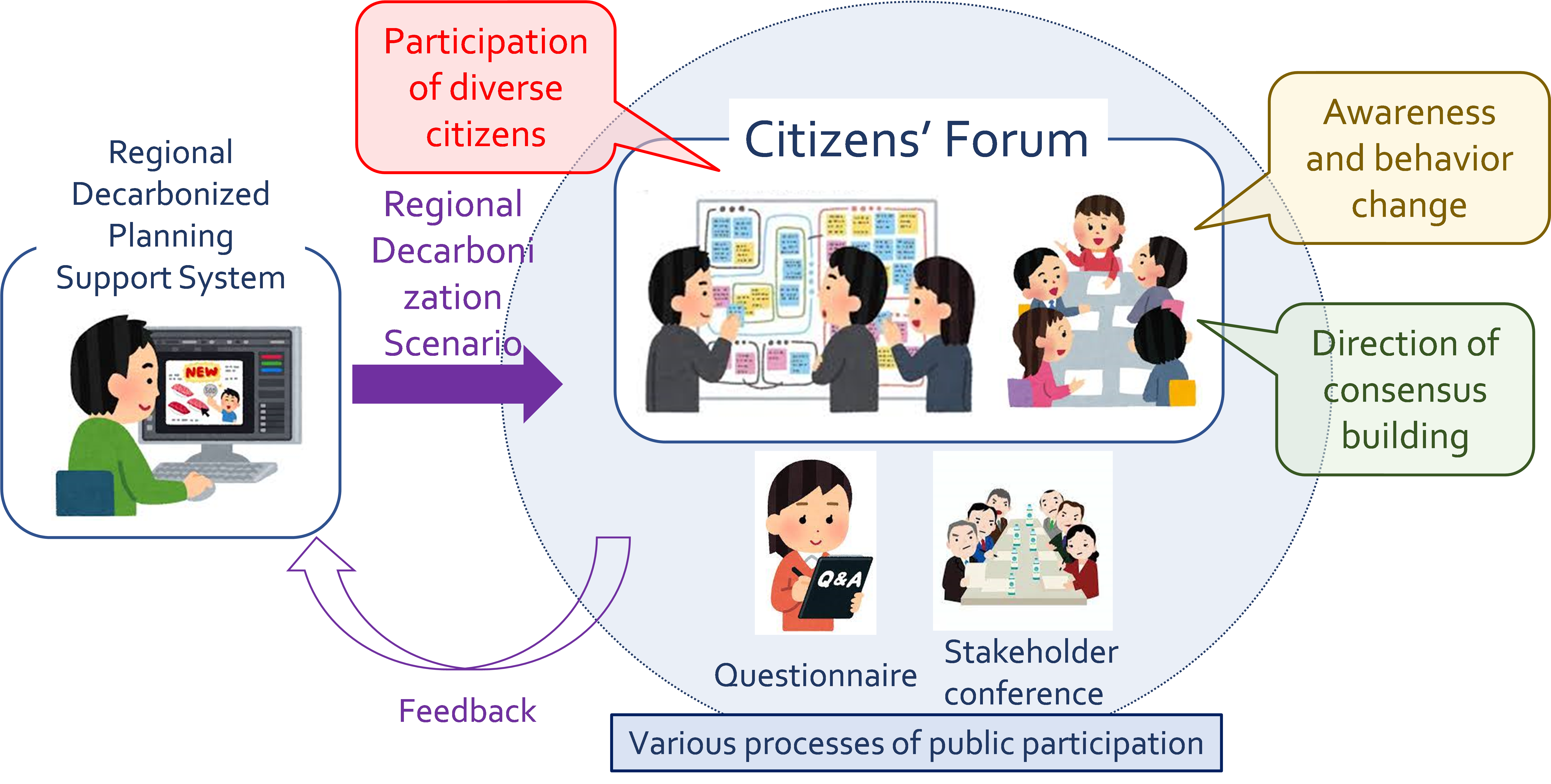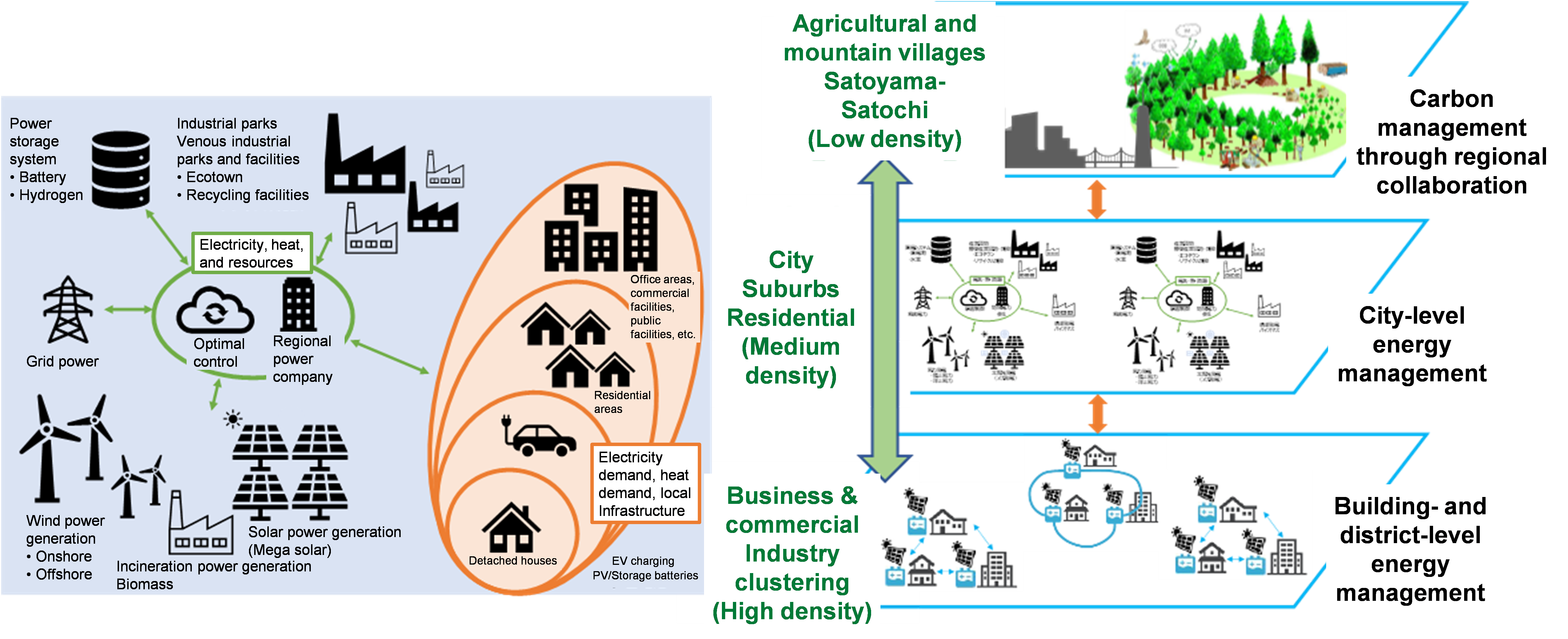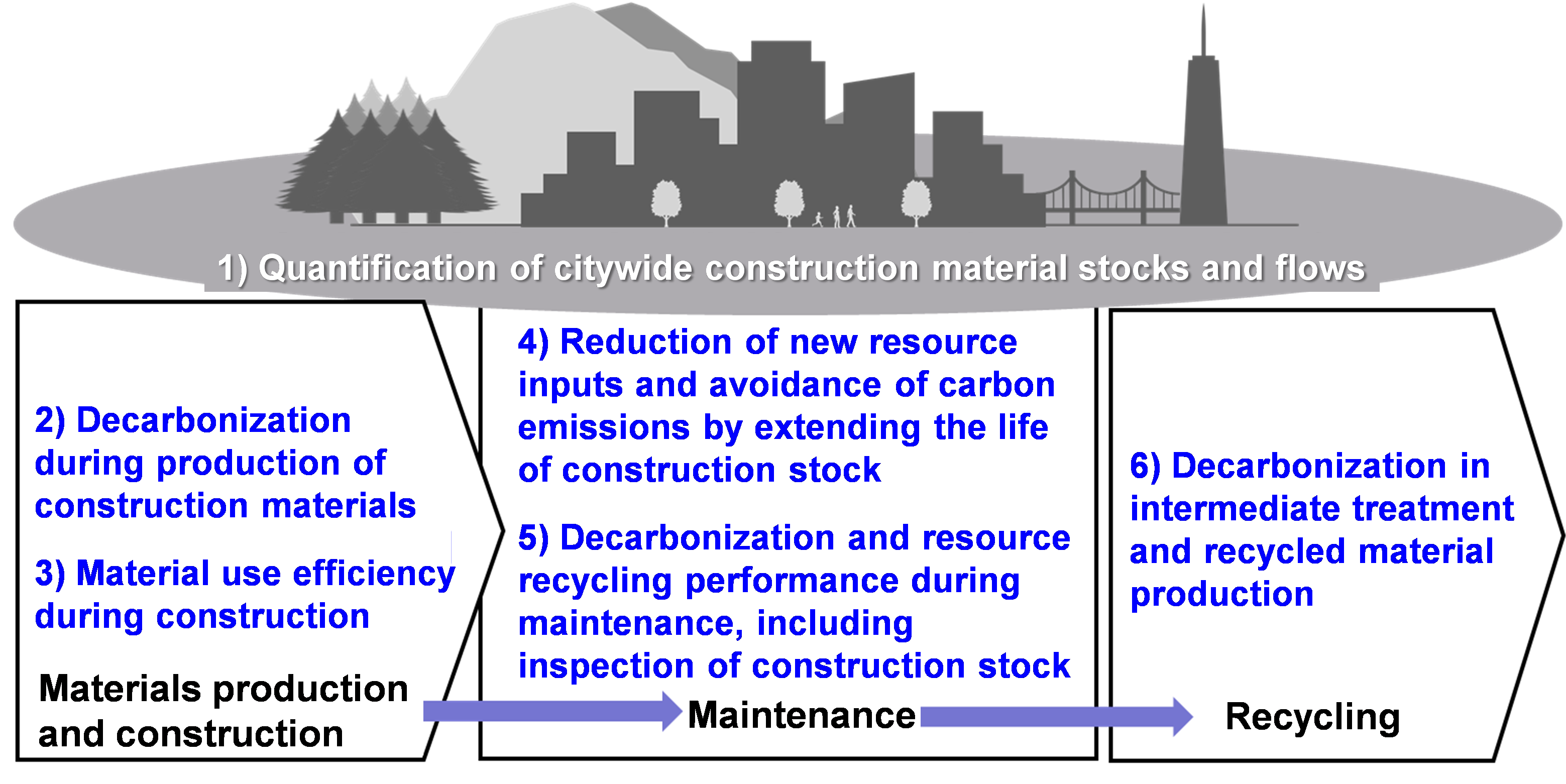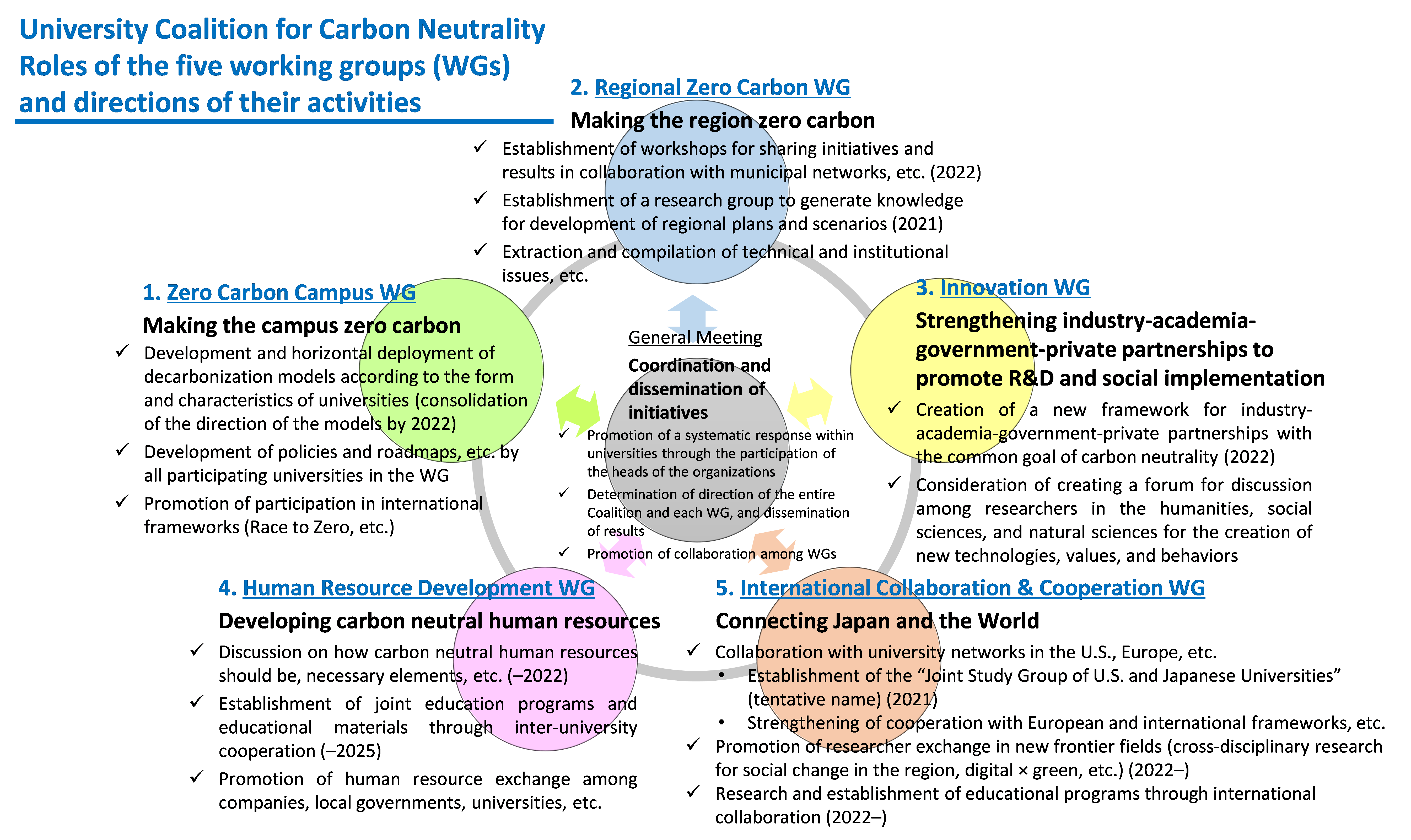From the perspective of promoting decarbonization and re-urbanization of each region in an integrated manner, this project is creating a system that can be used universally for regional planning while taking into account the characteristics of each region, by taking a cross-sectional view of the policy fields centered on energy, mobility, and construction stock, and building a foundation and system to promote initiatives for the integrated improvement of the environment, economy, and society.
It consists of a Regional Decarbonization Research Working Group (WG) with four Sub-Working Groups (Sub-WGs) and an Overall Integration Research WG that brings them together.
In addition, we have formed and are operating a coalition to share knowledge among universities and other institutions that will contribute to regional decarbonization, including the research outcomes of this project.
(1) Overall Integration Research WG
Integrate models from each policy area and build a system through a process that also involves public participation
This WG aims to develop a "Regional Decarbonization Planning Support System" based on a model that sets future goals related to local self-sustaining energy, next-generation transportation systems, construction stock management, etc., using input variables including climate change impacts, socioeconomic characteristics, and national plans, and then integrally estimates socioeconomic and environmental effects for the development of regional scenarios and plans.
* This WG aims to develop a cross-policy system that can be used universally in each region by integrating the systems for each policy area developed by each Sub-WG of the Regional Decarbonization Research WG and conducting empirical research on the process of social implementation through regional dialogue involving residents, businesses, and others.

Moreover, this WG will provide decarbonization scenarios obtained by the Regional Decarbonization Planning Support System to the process of public participation centered on citizens' forums in which diverse residents participate and engage in dialogue, thereby promoting changes in residents' awareness and behavior. Furthermore, this WG will design a mechanism that contributes to local planning by showing the direction of consensus building through dialogue among residents with different opinions.

(2) Regional Decarbonization Research WG
Build models and systems for each policy area through empirical research in each region
(2-1) Local Self-Sustaining Energy System Sub-WG
Based on analysis of energy demand and supply characteristics of various facilities, etc., this Sub-WG is building an optimal community energy management system (CEMS) according to local characteristics that can be utilized by each community. (Collaborating municipalities: City of Kitakyushu, etc.)

(2-2) Next-Generation Transportation System Sub-WG
This Sub-WG is building a pilot model for regional transportation management through public-private partnerships and establishing a system for evaluating the effects of introducing next-generation transportation to be incorporated into the planning of each region.
The evaluation system consists of simulations of changes in the urban environment and transportation behavior as inputs and environmental impacts as outputs.
In the estimation of urban environmental changes, the effect of LRT development is elaborated by calculating the effect of reducing travel time considering the time reliability.
In understanding changes in traffic behavior through mobility management (MM), this Sub-WG will understand the effects of MM by comparing the intention to use the system before and after MM information is disseminated. These results are then input into a simulation to simulate changes in transportation behavior and residential areas caused by the introduction of LRT. The carbon dioxide emission reduction effects obtained from this will be compared with various urban and transportation policies such as carbon tax and teleworkers. (Collaborating municipalities: Utsunomiya City, etc.)

(2-3) Decarbonized Construction Stock System Sub-WG
This Sub-WG is establishing a decarbonized construction stock management system aiming at climate change adaptation and mitigation measures and a long-lived city. (Partner local governments: Aichi, Gifu, etc.) (Collaborating municipalities: Aichi Prefecture and Gifu Prefecture, etc.)

(2-4) Local Linkage Sub-WG
This Sub-WG is visualizing regional characteristics by organizing regional groups using complex factors related to decarbonization and elucidating linkages (synergies and trade-offs) for each policy element, including policy areas other than energy, transportation, and construction. Using Kyoto and Shimane as examples, we are working on an economic, social, and environmental evaluation of renewable energies such as wood biomass and new electric power energy, regional coordination methods between urban areas of energy consumption and mountainous areas of production, and the development of consensus building mechanisms for carbon neutrality.

(3) Administration of "University Coalition for Carbon Neutrality"
Under this MEXT Program, a University Coalition is being operated as an organization to promote efforts to achieve carbon neutrality by bringing together the knowledge of academia, while disseminating the research results of this project. In addition to the participation of a large number of universities, which transcends the boundaries between establishers, participation eligibility has now been expanded to include local governments and corporations.
